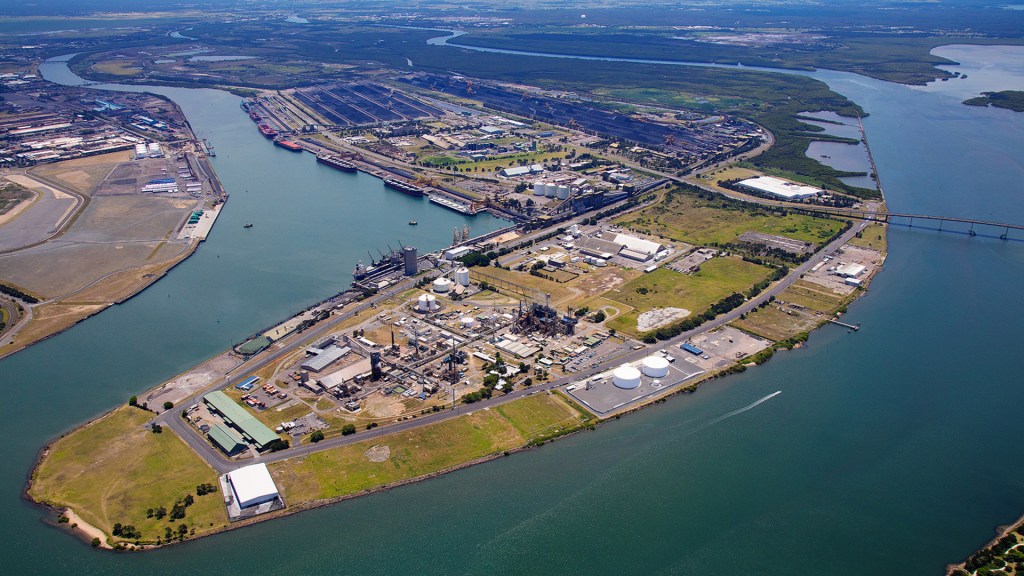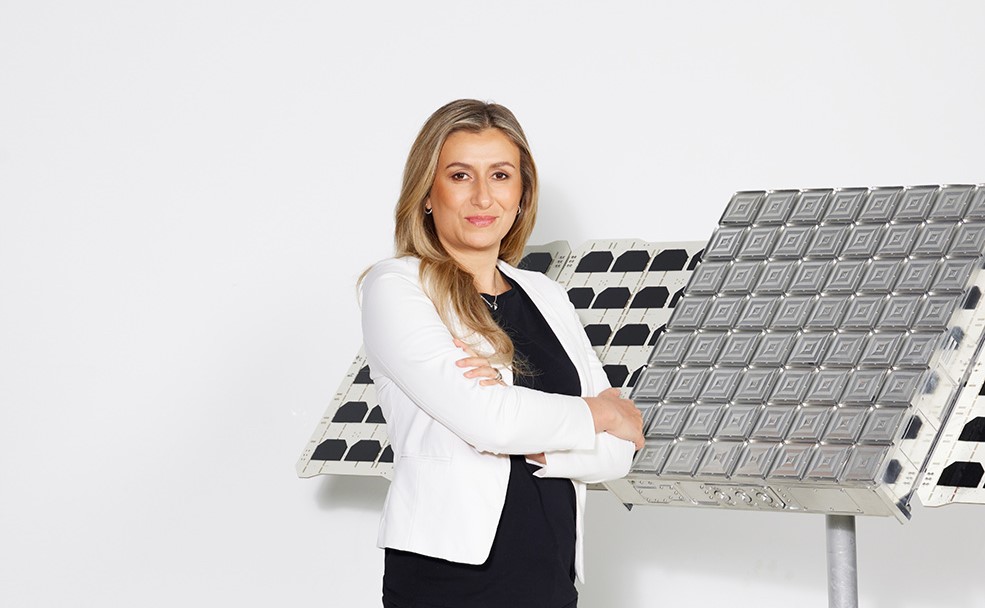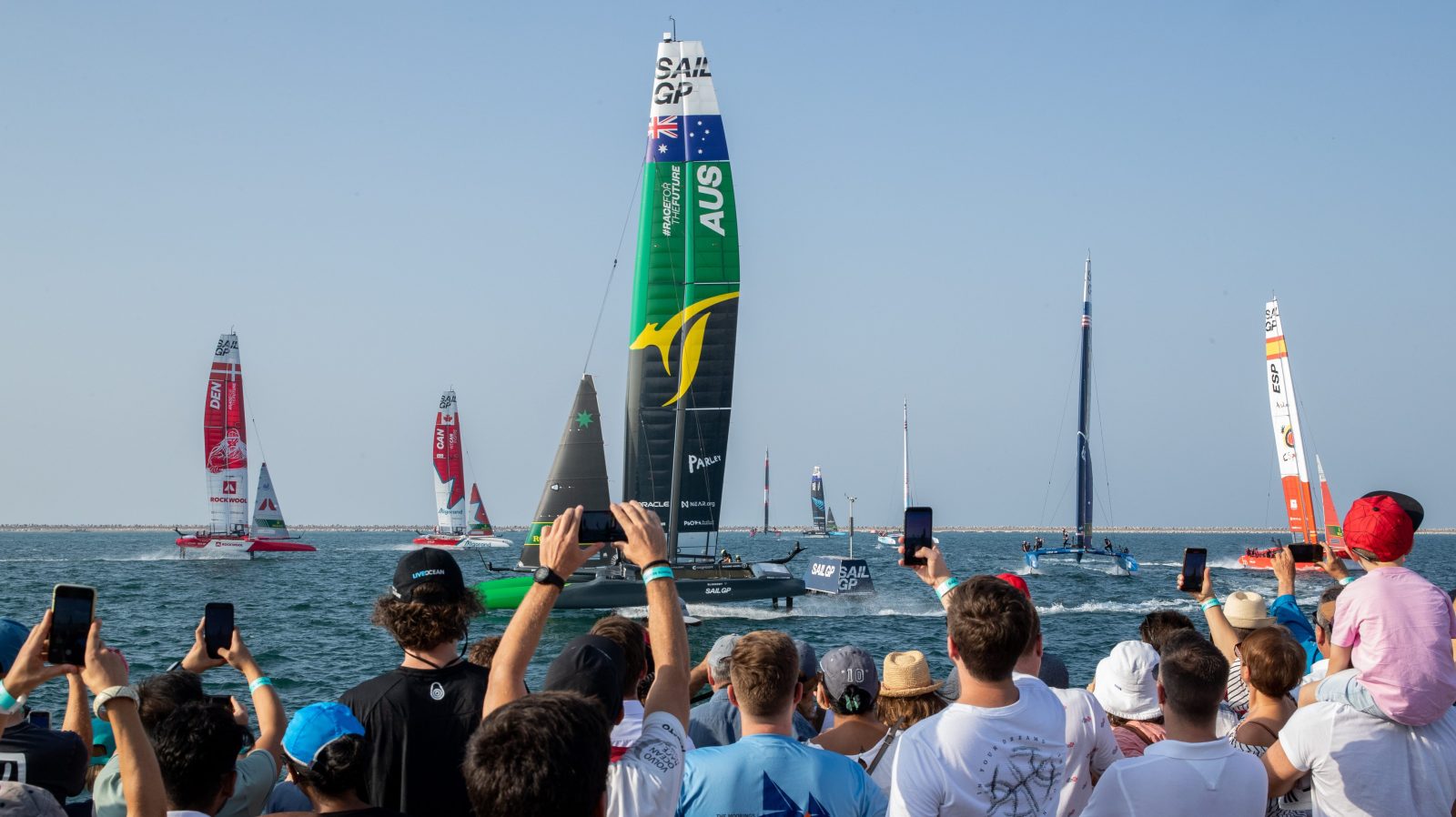Australian clean-tech company MCi Carbon wants to capture a billion tonnes of CO2 by 2040. After sitting on a panel in Davos, MCi Carbon’s chief operating officer, Sophia Hamblin Wang, explains how.

Fresh off the ribbon-cutting ceremony for its flagship carbon capture and utilisation facility, Australian clean-tech startup MCi Carbon finds itself at a pivotal moment in its journey to tackle climate change.
The 11-year-old venture, which specialises in making rocks absorb carbon dioxide (CO2) and for the end product to be fit-for-purpose in the construction and manufacturing industries, has a lofty goal: to capture 1 billion tonnes of CO2 by 2040.
And Sophia Hamblin Wang, chief operating officer and co-founder of MCi Carbon says the demonstration facility in Newcastle, called Myrtle, represents the company’s final step towards validating its technology for large-scale deployment.
In other words, the facility is key to MCi Carbon achieving its mission. At the time of writing, Myrtle was facilitating tests for more than 30 customers across Europe, Japan, Australia, and the US. When fully operational, it plans to capture and transform over 1,000 tonnes of CO2 annually.
What takes millions of years for the earth to do, we can do in minutes in our pilot plant in an engineered setting.
Sophia Hamblin Wang, co-founder, MCi Carbon
“At the moment, we have more appetite to use our technology than we have capability to test,” Hamblin Wang says.
The company was supported by government grants from inception until 2017, before raising its first external capital in 2019. It secured another $14.6 million grant from the government in 2021 and raised further investment from Japanese investors Sumitomo Mitsui Trust Bank in March this year.
It earned the title of top clean-tech start-up out of 2700 entrants at COP26 in Glasgow in 2021. The $3 billion Austrian refractory RHI Magnesita has signed on to build MCi Carbon’s next plant in Austria by 2027/28, to capture 50,000 tonnes of CO2 annually.
“These are truly long-term partnerships with parties that want to scale the technology with us as quickly and urgently as possible. We know it’s what’s needed for the world,” Hamblin Wang says
And what’s needed, is to decarbonise, particularly in hard-to-abate sectors like cement, steel, and glass. MCi Carbon developed a way to do that through mineral carbonation (hence the MC in MCi), an advancement of the earth’s process of storing CO2 through weathering. This involves fixing CO2 back into minerals, making minerals useful in the circular economy.
“What takes millions of years for the earth to do, we can do in minutes in our pilot plant in an engineered setting,” she says.
“We take magnesium silicate rocks, bind the CO2 to the magnesium in there, and react it in our Newcastle facility, which creates magnesium-carbonate and silica.
“The magnesium-carbonate can be turned into plasterboard or drywall, and the silica is used as a supplementary cementitious material. It’s an additive that can reduce the carbon footprint of the cement industry by about 30%.”

One product becomes carbon-negative, the other amounts to a significant reduction in carbon footprints. According to CEO and co-founder Marcus Dawe, the carbon-embodied materials can also be used in glass, concrete and paper.
The theory behind the technology came from a 2005 Intergovernmental Panel on Climate Change (IPCC) report, which found mineral carbonation had potential to reduce emissions.
At the time, there were only lab-scale mineral carbonation testing facilities. MCi Carbon co-founders Marcus Dawe (Hamblin Wang’s half-brother) and John Beever sought to turn CO2 from waste into a resource.
They self-funded six years of university-based scientific research and industry advocacy before securing grants from the Australian government and Orica in 2013. That year, they lured Hamblin Wang away from her PhD to lead the company from lab to pilot plant. In 2023, she was named a co-founder, and joined a panel at the World Economic Forum in Davos to debunk carbon pricing myths.
We anticipate that the world’s largest steel and cement companies will be using MCi Carbon to decarbonise.
Sophia Hamblin Wang, co-founder, MCi Carbon
“Effective companies are always created with a high-functioning team, and MCi had a very high-functioning group of individuals who all brought something to the table, either from a technical perspective, or from growing ventures, or in my case, from social impact.”
MCi Carbon is currently focused on testing emissions from global customers and creating carbonated end-products to send back to them to work with local industries on whether those products are suitable.
“Once customers test at our demonstration plant, that will be all the information they need to build a large-scale facility next door to their emissions. We anticipate that the world’s largest steel and cement companies will be using MCi Carbon to decarbonise.”
One more capital raise is on the cards in 2025 before the company sets its sights on becoming one of Australia’s climate unicorns.
“We certainly see a path to becoming one.”
Are you – or is someone you know -creating the next Afterpay or Canva? Nominations are open for Forbes Australia’s first 30 under 30 list. Entries close midnight, July 15, 2024.
Look back on the week that was with hand-picked articles from Australia and around the world. Sign up to the Forbes Australia newsletter here or become a member here.



